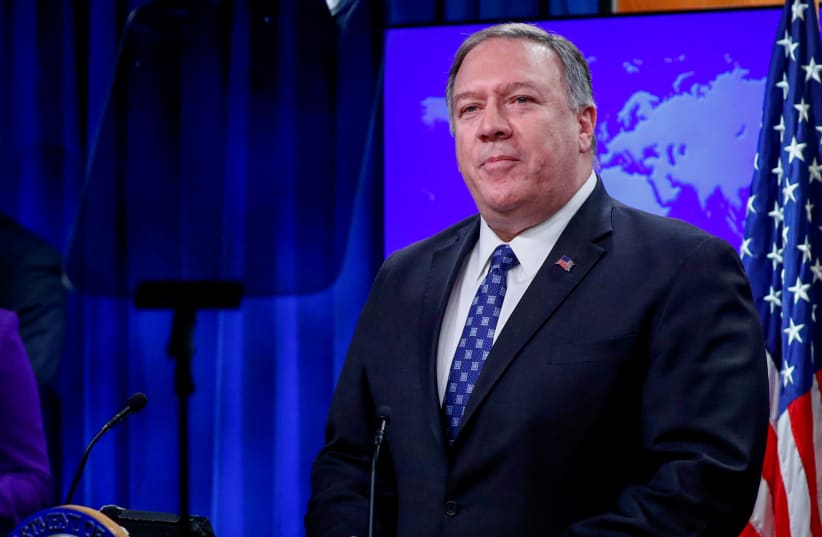WASHINGTON - US Secretary of State Mike Pompeo on Wednesday renewed his aggressive criticism of China, blaming it for the deaths of hundreds of thousands of people from the coronavirus and demanding again that it share information about the outbreak.
"They knew. China could have prevented the deaths of hundreds of thousands of people worldwide. China could have spared the world descent into global economic malaise," Pompeo told a State Department news conference.
"China is still refusing to share the information we need to keep people safe."
Pompeo pushed back against suggestions that he and other members of the Trump administration have issued conflicting statements about the exact origins of the novel coronavirus while blaming China for the initial outbreak in the city of Wuhan.
On Sunday, Pompeo said there was “a significant amount of evidence” the virus emerged from the Wuhan Institute of Virology, having said the previous Thursday it was not known whether it came from the lab, a so-called wet market, or some other place.
On Wednesday, he said the United State did not have certainty, but there was significant evidence it came from the lab.
"Every one of those statements is entirely consistent," he said. "We are all trying to figure out the right answer. We are all trying to get the clarity. There are different levels of certainty assessed at different places, Pompeo said.
Critics believe the US administration is seeking to deflect attention from what they see as a slow US response to the outbreak, which has killed more than 255,000 people around the world, including more than 70,000 in the United States, the worst-hit country, according to official statistics.
OPAQUE
Republican President Donald Trump, who is seeking re-election in November, on Tuesday also urged China to be transparent about the origins of the outbreak.
Pompeo said China was still withholding virus samples he says are needed for global vaccine research and rejected suggestions that Washington was being unfair to Beijing.
"They continue to be opaque, they continue to deny access for this important information that our research or epidemiologists need," he said.
"People say, well America's bullying the Chinese. We are demanding of them only what we demand of every nation: be transparent, be open, be a reliable partner, the very things that they say. The Chinese say they want to cooperate. Great. Cooperation is about action."
The Wuhan Institute of Virology, a Chinese state-backed institute, has dismissed allegations that the virus originated there. Most experts believe it originated in a Wuhan market selling wildlife and jumped from animals to people.
Dr. Anthony Fauci, director of the US National Institute of Allergy and Infectious Diseases and a member of Trump's Coronavirus Task Force, said in an interview published on Monday that the best evidence showed the virus was not made in a lab, but appeared to have "evolved in nature and then jumped species."
Trump was asked last Thursday if he had seen evidence that gave him a "high degree of confidence" that the virus came from the Wuhan Institute of Virology, and replied that he had, although he declined to give specifics.
Pompeo again took aim at the World Health Organization, which Trump has called "China-centric" and suspended US funding to.
"It's not only that they didn't enforce ... the WHO needs to still demand that there be an investigation," Pompeo said, adding that WHO Director-General Tedros Adhanom Ghebreyesus needed to be "just as concerned as the United States ... and other countries that we still don't have access to the answers we need."
In an opinion article published in the Washington Post, China's ambassador to the United States, Cui Tiankai, said "blaming China will not end this pandemic."
"It is time to end the blame game. It is time to focus on the disease and rebuild trust between our two countries," he said.
